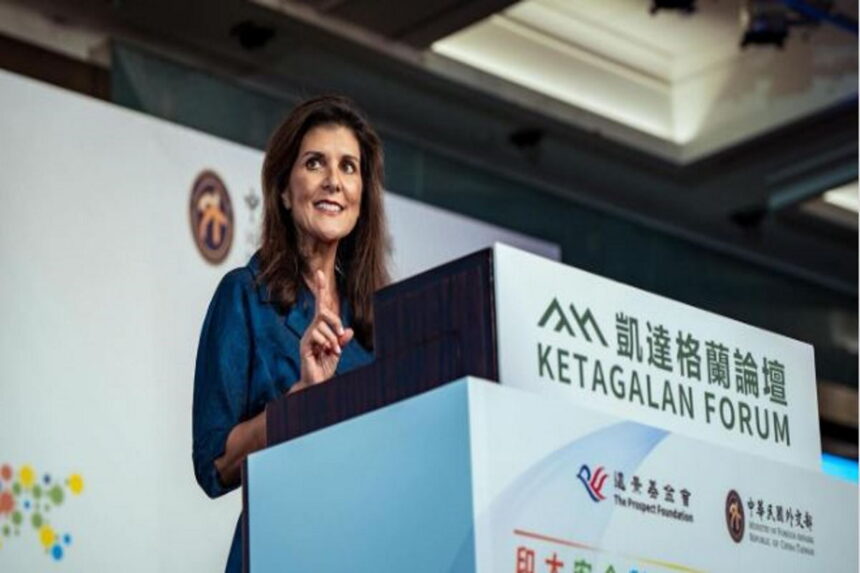Former U.N. Ambassador Nikki Haley gave her gracious response after President-elect Donald Trump announced she would not be part of his next administration. The news was kind of stirring in the political campaign that many did not know what exactly has been taking place within the evolving dynamics of the GOP as Trump shapes the next cabinet.
Haley, once a strong opponent and now an outsider to the Trump family, extended congratulations to the president-elect via social media, which just goes to show that even the most divided of parties can unify in agreement.
Nikki Haley Responds with Her Attachment to the GOP
Immediately after Trump posted his decision on Truth Social, Haley was classy in response-she wished him all the best in his endeavor in office. She showed respect, mentioning a tough road they had traveled, and reiterated her commitment to making America strong. She subtly proved to be resilient and mature enough with her response, preparing her relevant voice within the Republican Party, which Trump just excluded from the next cabinet.
Haley summarized thusly: “ I was proud to work with President Trump defending America at the United Nations. I wish him, and all who serve, great success in moving us forward to a stronger, safer America over the next four years.” Her words just relished a sense of duty and readiness to set aside self-interest in service to the greater good.
Trump’s Announcement about Nikki Haley
With this latest posting by Trump on Truth Social, it would appear that neither Haley nor former Secretary of State Mike Pompeo would have a place in the new cabinet. All this seems to be part of some kind of continuing strategy whereby this president-elect shapes his team according to his priorities and vision.
“I will not be inviting former Ambassador Nikki Haley, or former Secretary of State Mike Pompeo, to join the Trump Administration, which is currently in formation. I very much enjoyed and appreciated working with them previously, and would like to thank them for their service to our Country”.
The statement showed early on that Trump was indeed determined to chart an unprecedented course for his government. By the exclusion of the two highly regarded former officials, Trump appeared set on forming a cabinet in conformation with his preconceived idea about what form of leadership he wanted to promote, particularly in foreign policy and national security.
A possible motivation for Trump’s action could be that Haley and Pompeo voiced open support for U.S. intervention in alliances around the world, which could insinuate that the new administration will go isolationist.
Speculating on Trump’s Vision and Shutting Out Former Allies
The decision to leave out Haley and Pompeo has created debate among Republicans and other political analysts alike. Some see Trump’s move as a premeditated one, to make a cabinet that is more insular-an America-first cabinet, if you will- compared to international cooperation that defined Haley and Pompeo’s time in the administration. Others say that perhaps Trump’s decision may also partially have to do with personal differences; for instance, Pompeo was pretty vocal against certain aspects of his presidency.
Over time, Pompeo’s relationship with Trump cooled, especially after remarks Pompeo made to the Conservative Political Action Conference in 2023, when he warned against “celebrity leaders with fragile egos.” He later dialed it back, making clear it wasn’t about Trump. Pompeo also weighed in publicly on many of the sensitive matters that touched on Trump directly, including the handling of classified documents at Trump’s Mar-a-Lago residence.
Haley, for her part, was less confrontational. Though she spoke out against Trump’s phrasing when it sounded hurtful to women and minorities, she never spoke directly against him. Her graceful acceptance of the Trump move reflects the diplomatic mindset Haley has assumed since becoming the U.N. Ambassador.
The Future of Nikki Haley and Her Role within the GOP
Whereas Haley had been excluded from the incoming administration, the response she provided only serves to underscore her commitment to GOP ideals and an outstretched hand in helping with what would benefit the nation. This could further cement her standing within the Republican Party as a stable and unifying figure, serving her quite well as she continues to develop her political career.
Having served both as a governor of South Carolina and a U.N. Ambassador, Haley’s record positions her as experienced within the leadership ranks of the GOP. Her remarks here reflect a rather advanced understanding of party unity during very polarizing times for the GOP. She may not have a formal role within the Trump administration, but her engagement with and influence upon that party remains extremely high.
With tenure, Haley could be seen to repair fissures in the Republican Party and position herself for a future leadership bid. On foreign policy, her policies of alliance-building, taken together with relatively moderate domestic policy views, would appeal to a broad swathe of the party’s base. She might spend intervening years shoring up her position by pushing her view of America or assisting important causes for the Republicans.
Trump’s Strategy and What It Means for the Next Four Years
The selection of Trump’s Cabinet seems to be a definitive move in the direction of evolving his political strategy into an administration that would deeply connect to what his supporters cared about. For Trump, selecting an administration endorsement of his ideas on issues related to U.S. involvement abroad, economic nationalism, and immigration would ensure there would be no opposition from within to impede his agenda’s progress.
With the 2024 election shaping up to be one marked by sharp divisions, Trump’s choices may also be a tactical response to critiques and a path toward consolidating his core followers. The fact that he has put such an onus on loyalty and ideological purity in staffing suggests that he wants and needs an administration that will carry out his vision without much internal dispute. That may position him better to deliver on campaign promises but also risks alienating more moderate or traditionally conservative Republicans further.
As the Trump administration takes shape, the absences of Haley and Pompeo are indicative of a shifting landscape of sorts for Republican politics. It seems that the president-elect takes a cue from a strategy strictly adhering to his view, keeping him as far as possible from the globalist and moderate contribution of figures such as Haley and Pompeo. That could mean it will be different in the way the GOP envisions governance for the next four years, and that Trump wants to have a leadership with a cabinet of his ideals.




